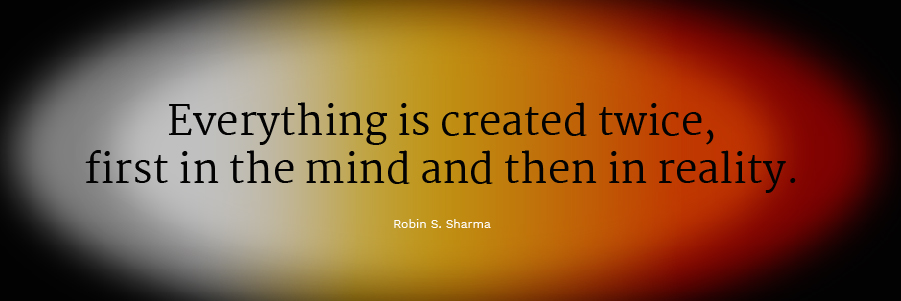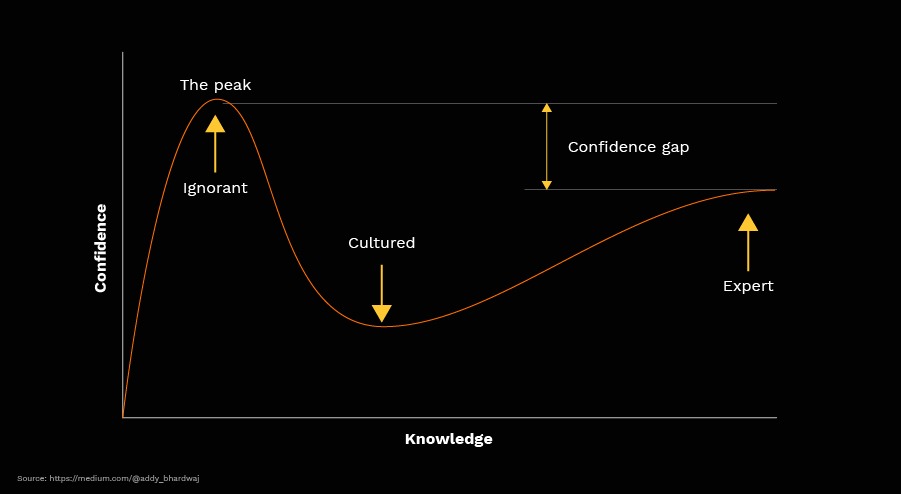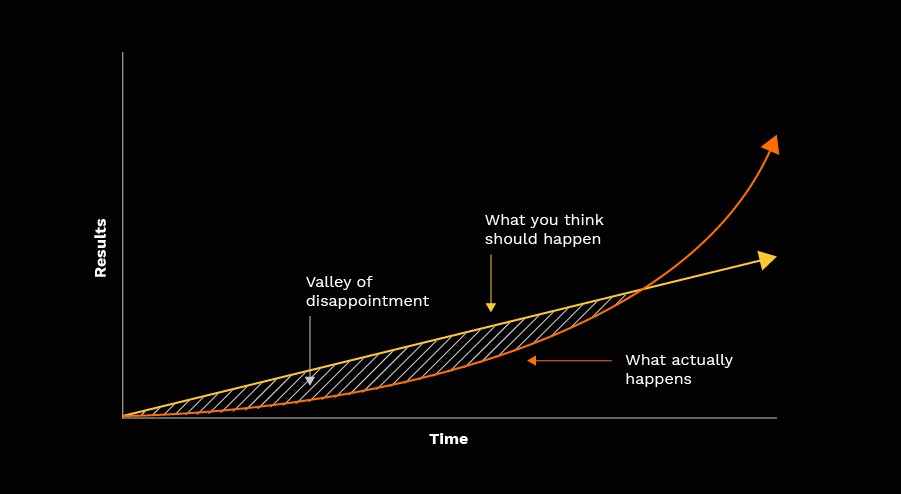The path to achieving growth requires courage, mostly in the form of belief in our own visions.
Everything is conceived twice – once in the mind, and then again in reality. Entrepreneurs are people for whom the first conception must be strong enough to ensure that the second follows. This requires confidence in vision, and a willingness and ability to bring others on board with it. For some entrepreneurs this is a natural strength, they exude a force or willpower that compels others. Sometimes, it can border on delusion, a conflation of fantasy and reality.

What is more common though is self-doubt. Do you have the correct insight, idea, or vision to merit investing considerable resources – your own and others – into it?
The answer lies in experience. If you’ve been doing what you do for more than 2-3 years, you probably have as good an idea as anyone in your industry as to where the opportunities and threats lie. More than 4-5 years and you are an industry expert. However, a quirk of human psychology works against us here.

The Dunning-Kruger effect is a common human bias. It is common to see an irrational surge in confidence at an early stage of competence. When I first started learning to windsurf, I believed I would be riding huge waves in no time. It took time to learn just how far down the curve I was, and how hard that would be. When you start to gain expertise, however, you’re more likely to question yourself. After having spent 15 years in China, I ended up having almost nothing to say about it, beyond ‘it’s a big place’, because I was overwhelmed by the complexity of what I had come to understand.
At this stage of knowledge what holds us back is not false hubris, it is either lack of confidence in our own ideas, or overwhelm at the complexity of potential things that could go wrong. So, as you consider going on the path and journey towards scale, if you have years of experience in your field, calibrate towards taking a chance, chasing a dream, and making leaps of faith. You are far more likely to be held back by fear of failure or error than you are by actual failure

Delivering change, getting difficult things done, scaling a business, these all take time, and require harnessing the compound effect of rhythms and habits in order to achieve. The concept of small incremental improvements compounding to huge changes over time is a key part of the ‘Kaizen’ philosophy.
Masaaki Imai

The commitment to scaling is not just to a single shot project or one-off planning session, it is to a new way of working over a sustained period of time. Be aware of the nature of how benefits accrue when you start making changes and improvements. Adding a 1% benefit each day is barely noticeable at first. When all the 1%’s start to compound, suddenly big improvements become clear. In the early stages it takes grit and perseverance to keep going and get through ‘the valley of disappointment’.
One team we work with are growing at 50% per quarter now, but it took them 3 years to reach that point. As the saying goes: “It’s amazing how long it takes to build an overnight success.”
Interested to talk through any of these ideas?
Get in touch @ andy@scalecoach.co.uk
Get updates on special events.
Website design by PATTEN DESIGN